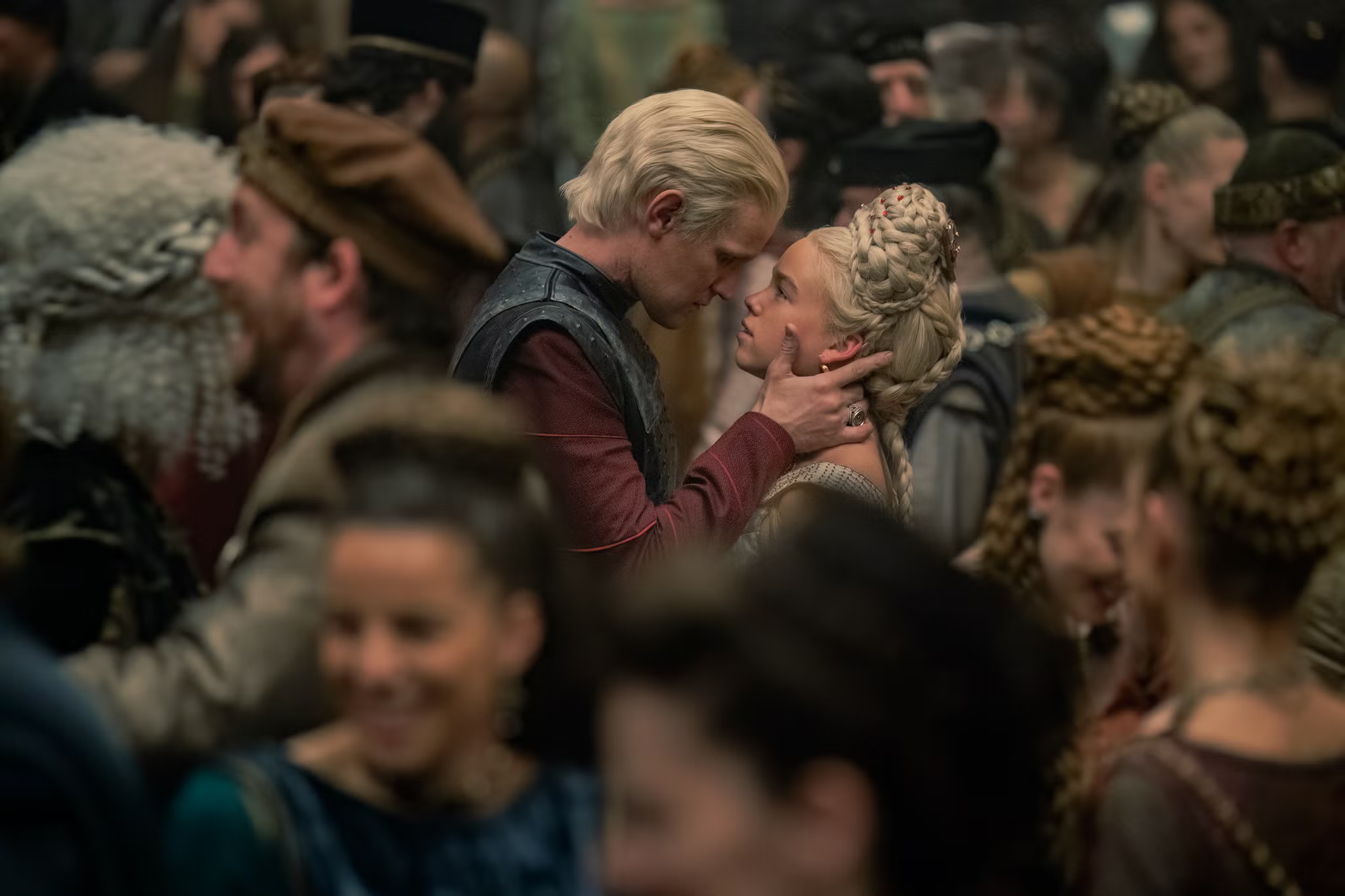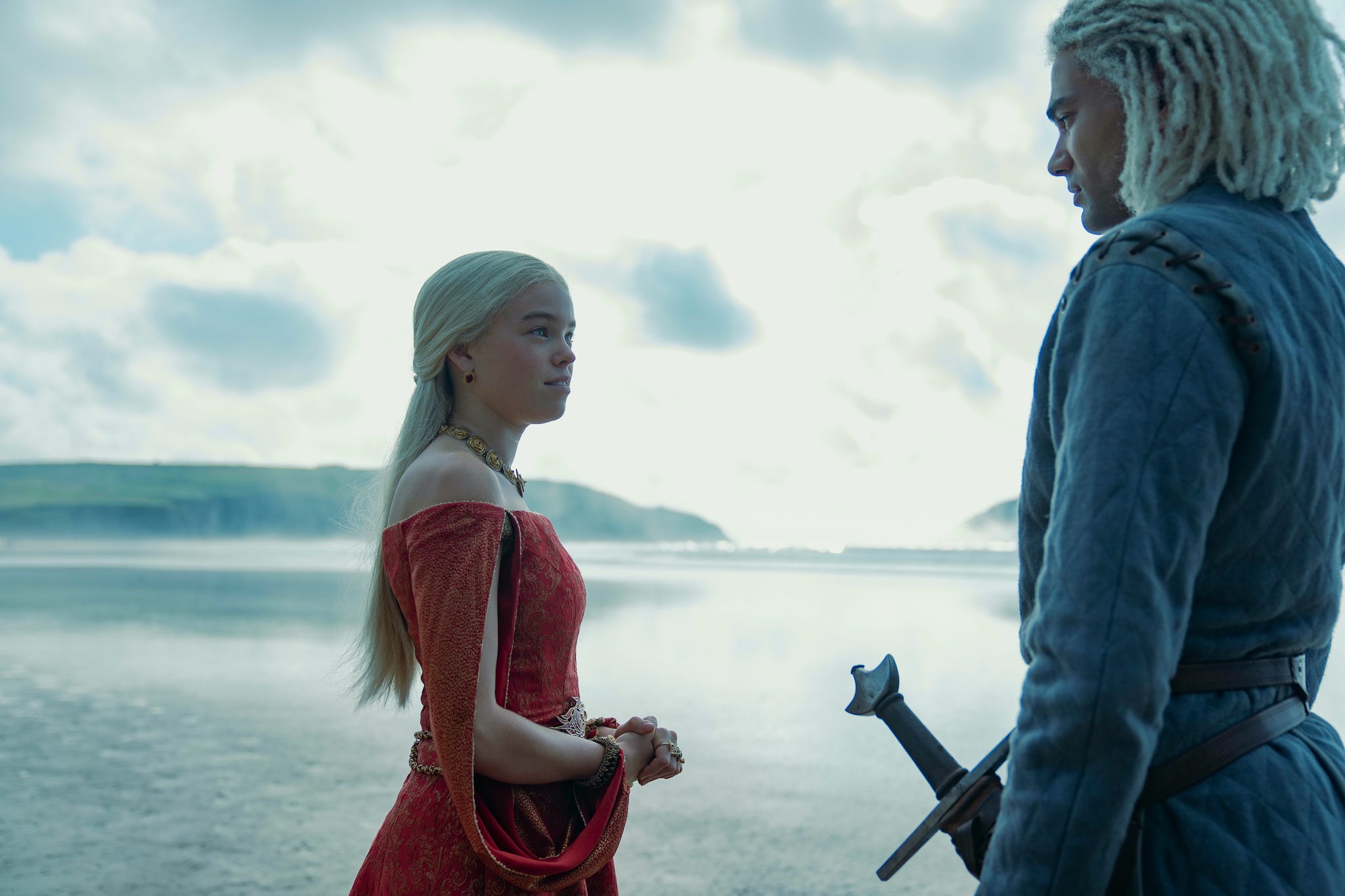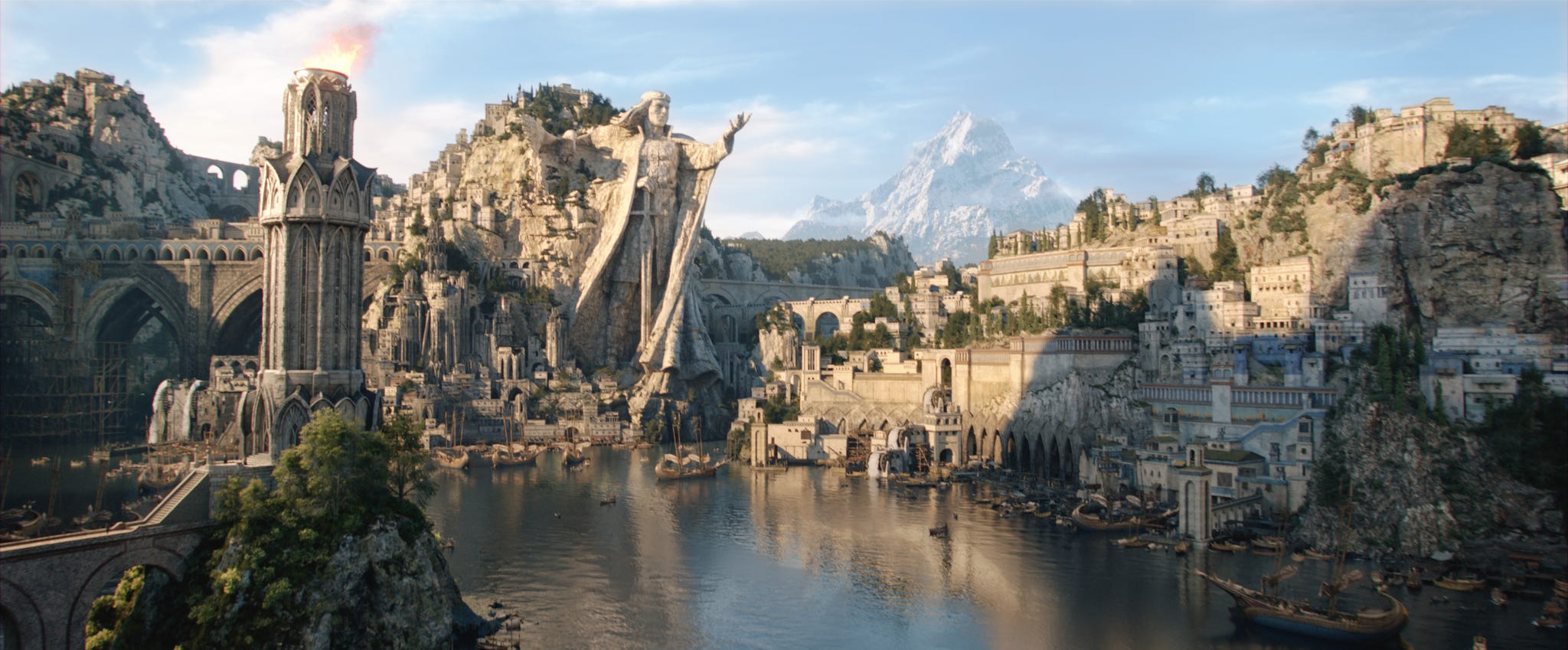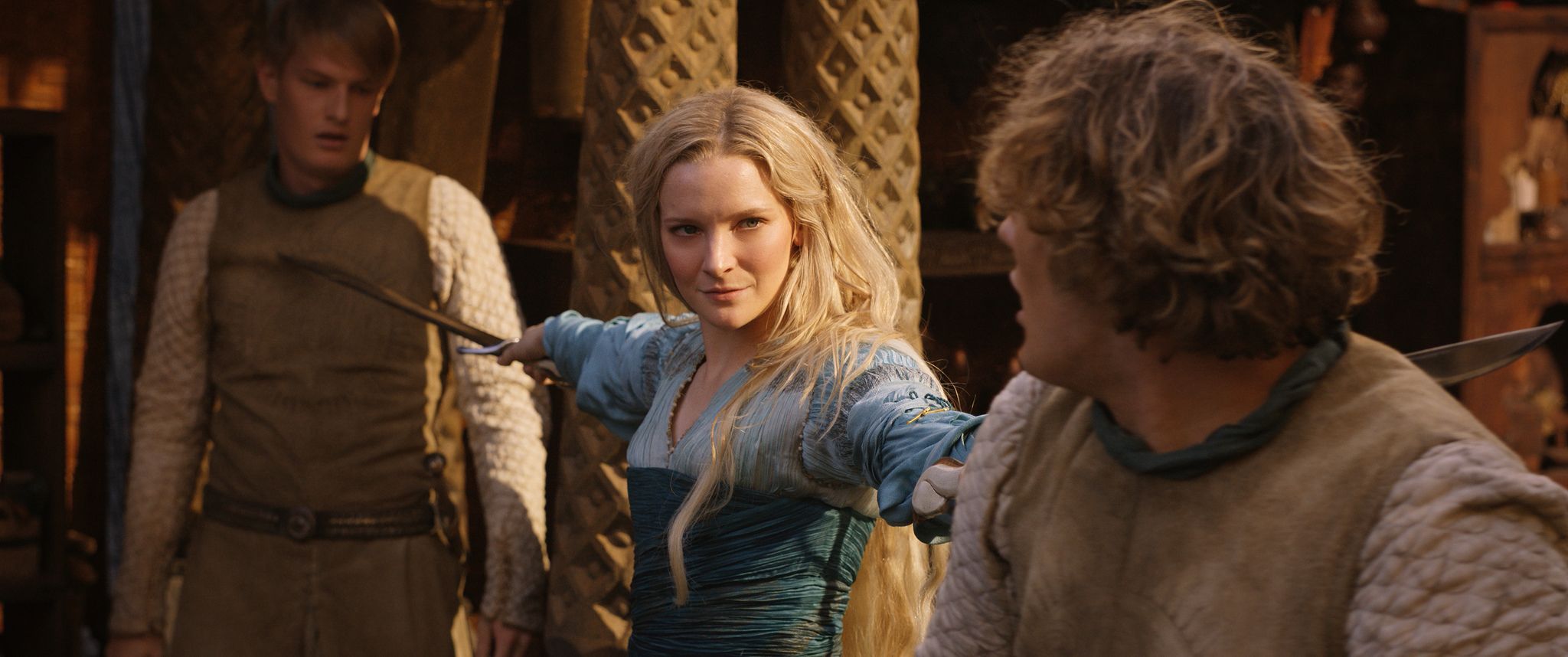In late summer, a bitter war was brewing – not in Westeros or Middle-earth (though there was trouble afoot there) – but between TV networks. In one corner, heritage network HBO with Game of Thrones follow-up House of the Dragon and in the other, challenger studio Amazon with its Lord of the Ring’s spin-off The Rings of Power. Fantasy fans and casual TV viewers alike were spoilt for choice, but was there really enough time to follow both small-screen epics? Do you know how much TV there is currently on?
Early numbers for both shows were monstrous. In a rare moment of discretion, Amazon announced, likely with a sigh of relief given £399 million production costs, that The Rings of Power won over 25 million viewers across the globe. House of the Dragon meanwhile broke a debut record for HBO, is averaging 29 million viewers and, most impressively, growing every week.
House of the Dragon's momentum has been matched by mostly positive reviews, and crucially, the internet’s attention. While early The Rings of Power coverage was skewed by complaints about a racially-diverse Middle-earth (House of the Dragon's black actors experienced similar onslaught), reviews haven’t really picked up. The resounding opinion seems to be: it’s fine. Fine doesn’t really win eyeballs.
House of the Dragon likely had an unfair advantage. Game of Thrones dominated online conversation from 2011-2019, sparking breathless reactions to the show’s unending drama. Even when it was bad, especially when it was bad, people couldn’t stop talking about it. While launching a follow-up brings its own difficulties (and HBO has cancelled other potential Thrones off shoots), the internet was primed to rejoin Westeros. Just enough time had passed since that widely-hated final season for viewers to welcome its prequel with open arms. Talking, tweeting, complaining about House of the Dragon feels nostalgic, like remembering a long-lost in-joke.
No such luck for The Rings of Power. The Tolkien fanbase, known for its nerdy dedication to the English author’s text, likely eyed Amazon’s production with suspicion. The studio was in a no-win situation with fans’ fury at the show’s diversity, though its arguably heavy-handed approach to “review-bombing” – simply delaying user-submitted reviews – may have incensed them further. But even for viewers willing to approach The Lord of the Rings spin-off generously, it was a mammoth task.
The Rings of Power, while undeniably calming, is big. Very big. Some might venture too big. Each episode, we’re spun through the Southlands (where the humans live), Khazad-dûm (hi, dwaves), Lindon (home to the lofty elves) and wherever the Irish-accented hobbits scurry about. It’s frequently stunning, but also unwieldy. It’s simply not that compelling to watch a sprawling cast in isolation; House of the Dragon seems to have learnt from its predecessor’s mistakes in that regard.
House of the Dragon is much easier to digest. Set almost 200 years before Game of Thrones, it follows the peroxide blonde, borderline insane Targaryens (handily the most popular family in the George R.R. Martin universe) as their rule over Westeros begins to disintegrate. The drama is more contained, simpler and more satisfying to follow on a week-by-week by basis. A little like The Crown, with dragons. After The Ring of Power’s universe-setting opening episodes, momentum is gaining – characters are being drawn closer together, their dynamics are becoming clearer. But it’s also well into its first season now, and well, there really is a lot of TV going around.
It’s not much of a surprise that HBO, a well-established network, knew what it was doing right out the gate. HBO has crafted a show for maximum online chatter: there is sex (though it’s often handled more sensitively than Thrones), blood (still pretty grim) and controversial incest storylines. Its characters say things like, “I never jest about cake”, which may elicit eyerolls in some but create Instagram captions for others. There are call-backs to classic Thrones events – in the most recent episode of House of the Dragon, a bloody wedding recalled another bloody wedding (sometimes the showrunners often operate from an “if it ain’t broke” mindset). Having an opinion on this show is very easy.
Crucially, House of the Dragon might just be better TV. A lot of that is down to some star power and well-written characters. Prime among them is Westeros' biggest, baddest sad boy Daemon Targaryen (gleefully played by Matt Smith). He’s easy to hate, but even more fun to love: he flies dragons, he seduces women, he gets very good haircuts. Paddy Considine and Rhys Ifans skulk in the background. The show’s female characters shine, especially in comparison to Thrones. Those hobbits just don’t compare (they’re not even real hobbits!).
It is still, of course, early days for both blockbusters. No one has ever built a billion-dollar fantasy world before, and Amazon’s plans for a five-season show may still yield results. Once all episodes of The Rings of Power are released, it may be perfect for a Christmastime binge. But by then, it might be too late. There’s always another show around the corner.
Henry Wong is a senior culture writer at Esquire, working across digital and print. He covers film, television, books, and art for the magazine, and also writes profiles.
















